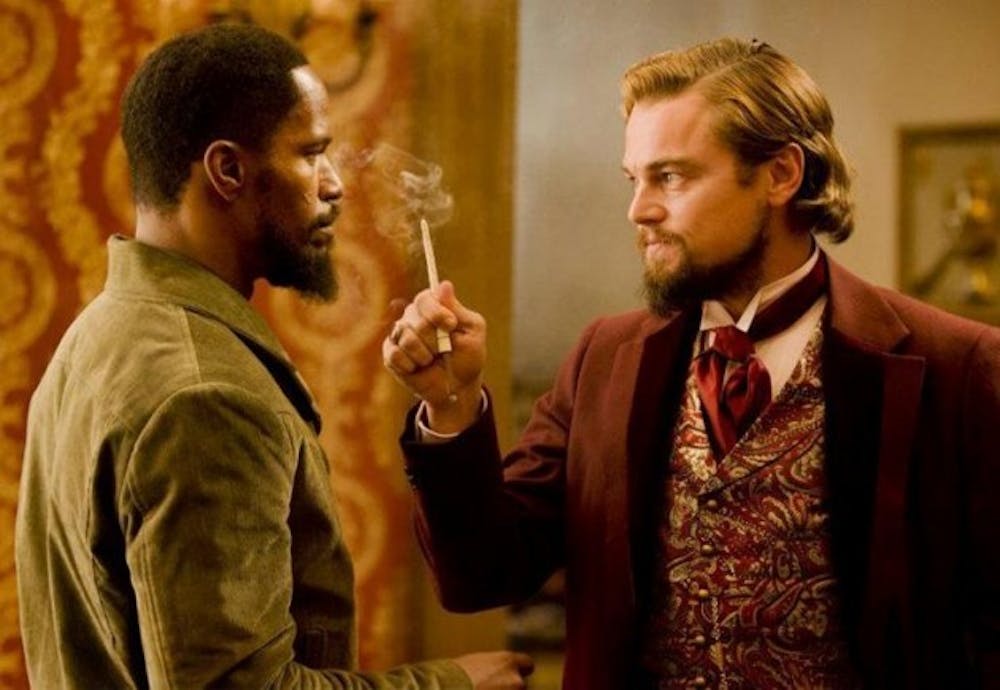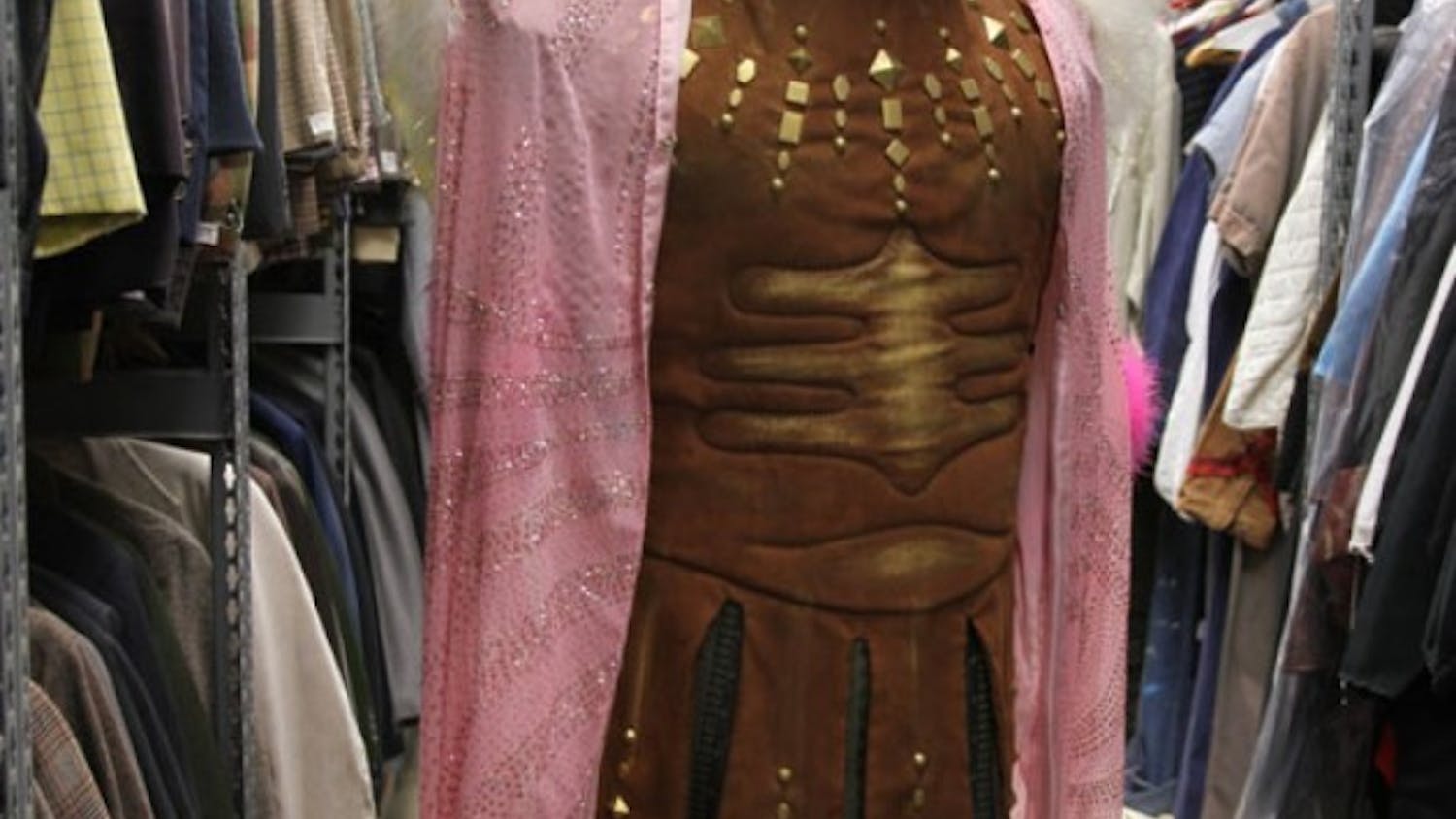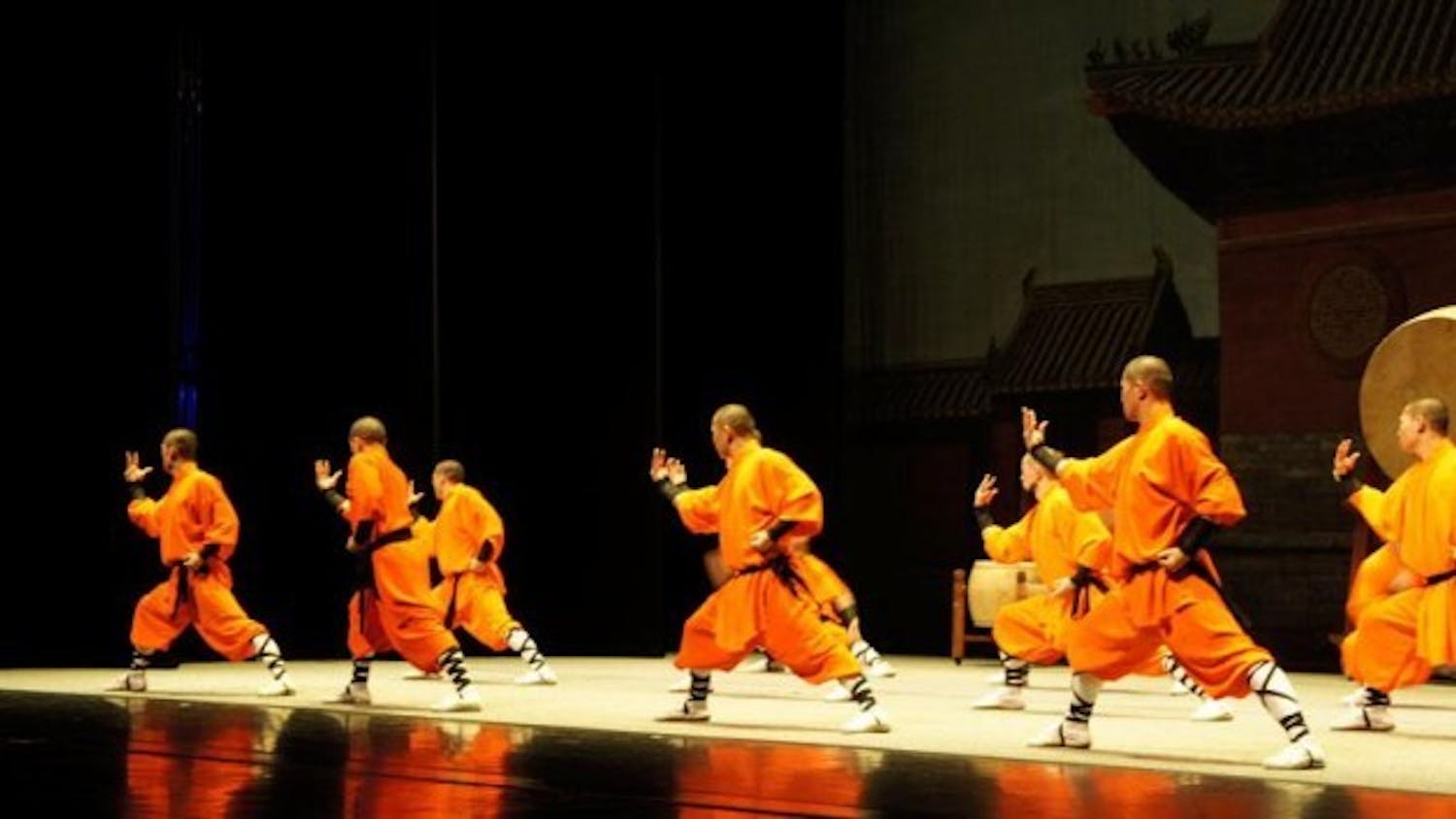Film: Django Unchained
Release Date: Dec. 25
Studio: The Weinstein Company
Grade: A
Quentin Tarantino's personal wet dream has finally taken form: a slam-bang preposterous spaghetti western. He wants barbaric, gun-slinging Mexican standoffs and lots of them. He wants a rogue galloping horseback through the rocky outback to save a damsel in distress with an old-time theme song that seems to be extracted directly from Blazing Saddles.
Tarantino (Inglourious Basterds) has emphatically expressed his timeless admiration for his influences. Kill Bill was a salute to his passion for Japanese samurai pictures and Inglorious Basterds was inspired from John Wayne and Lee Marvin-era war flicks. Django Unchained derives from the ludicrous westerns that drove Tarantino into filmmaking and results as one of this year's best films.
The opening shots are spellbinding in that Tarantinian fashion of seducing the audience with suspense. A chain-gang of black slaves staggers through rocky plains and a darkened forest. Among them is Django (Jamie Foxx, Horrible Bosses), who assures the D is silent. A peculiar bearded German, Dr. Schultz (Christoph Waltz, Carnage), riding a wooden trolley, ambushes the white owners and frees the slaves. Waltz, who also played the notorious "Jew Hunter" Col. Hans Landa in Tarantino's Inglourious Basterds, plays the same keys in this performance as a calculating swindler who is quick on his feet.
Schultz and Django journey through the usual western landscapes in search of Django's wife, Broomhilda (Kerry Washington, A Thousand Words), who hasn't achieved freedom like Django has.
Broomhilda serves time on the plantation of Calvin Candie, played by an almost unrecognizable Leonardo DiCaprio (J. Edgar). DiCaprio remains one of the most versatile modern actors; he can seemingly embody any character on a whim. Here, DiCaprio is an economic tycoon who is actually very intelligent, but he shows a weakness: he aims to earn profit in any deal he can. Candie is a diseased man, corrupted by the evil of the South where he was raised.
Candie's head servant, Stephen (Samuel L. Jackson, Zambezia), is another villain. He is oddly reminiscent of Hattie McDaniel's infamous maid from Gone with the Wind. Jackson is now 64 years old, and in this film, he plays a 70-year-old servant; but Jackson proves to be as vibrant as a 40-year-old. Jackson advertently steals every scene that he's in and gives one of the strongest performances of the year and his career.
Tarantino is relentless in depicting his vision of an old western, including one of the most suitable soundtracks in film. Most directors would've taken the low road by making an off-the-wall slapstick parody of a western, but Tarantino never takes cheap shots. To steal a phrase from Alfred Hitchcock, Django Unchained works as a thriller that plays its audience like a piano. Django Unchained sidesteps the easygoing parody route and is instead a worthy tribute to the cinema Tarantino cherishes.
Tarantino always displays masterful cinematography, shot in favor of his characters by enhancing their motives and feelings. Veteran cinematographer Robert Richardson - who won an Oscar last year for Hugo - has now collaborated with Tarantino four times. Richardson uses rash close-ups on characters' faces when they discover new information, and that simple effect elevates the storytelling enough to impact the audience.
Every film boils down to its screenplay, and it's widely known that Tarantino is a master of the vernacular. Plain and simple, his dialogue is fun to listen to. He never extracts conventional lines from other stories but remains specific to the individual character - a rare gem in Hollywood screenplays. He will, no doubt, receive another double nod from the Academy for original writing and directing.
All of Tarantino's films tell what seem like impossible stories, but he delivers a masterpiece every time. Django Unchained is another treat for Tarantino fans, who will love this film just as much as his previous works.
Email: arts@ubspectrum.com





